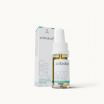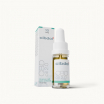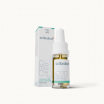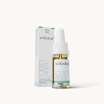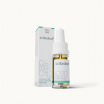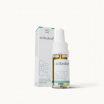Can You Be Allergic to CBD?
Published:
CBD, short for cannabidiol, has become immensely popular in recent years. Derived from cannabis plants, CBD is widely available in oils, edibles, topicals and other products. Many people use CBD for its potential therapeutic benefits, which may include relief from pain, anxiety and sleep issues.
Contents:
- What Is a CBD Allergy?
- What Causes a CBD Allergy?
- Are CBD Allergies Common?
- Are Hemp Allergies The Same as CBD Allergies?
- Who May Be At Risk For CBD Allergies?
- What to Do If You Have a CBD Allergy
- Is It Possible to Develop a CBD Allergy Over Time?
- Can You Develop a CBD Tolerance?
- Should You Worry About Cross-Reactions to THC, Hemp or Marijuana?
- CBD Allergy Essentials
- Frequently Asked Questions About CBD Allergies
- The Bottom Line
- Additional FAQs: CBD Allergy Risks and Precautions
- What Are the First Signs of a CBD Allergy?
- What Symptoms Require Immediate Medical Care for a CBD Allergy?
- How Soon Do CBD Allergy Symptoms Appear?
- Can You Safely Use CBD with a Known Hemp Allergy?
- Does an Allergy to Marijuana Mean You're Also Allergic to CBD?
- Can You Take CBD if You're Allergic to Perfumes or Fragrances?
- Is CBD Isolate Less Likely to Cause Allergic Reactions?
- Can You Be Allergic to Hemp Seeds but Not CBD?
- Is There Any Research on CBD Allergy Shots for Desensitization?
- Summary
However, as CBD gains more widespread use, some people have raised concerns about potential allergic reactions. So an important question is emerging: can you be allergic to CBD?

What Is a CBD Allergy?
An allergic reaction occurs when the body's immune system overreacts to a foreign substance, treating it as a threat even though it's harmless. The immune system responds by producing antibodies that trigger the release of chemicals like histamine, resulting in allergy symptoms.
A CBD allergy develops when the body identifies CBD as a harmful invader and mounts an immune response against it. Symptoms of a CBD allergy can include:
- Hives, rash or itchy skin
- Runny nose and sneezing
- Red, itchy or watery eyes
- Coughing or wheezing
- Nausea or vomiting
- Diarrhea
- Dizziness
- Swelling of the lips, face, tongue and throat
In rare cases, CBD allergies can cause anaphylaxis, a potentially life-threatening reaction that impairs breathing and requires immediate medical treatment.
So in summary, a CBD allergy is an overreaction of the immune system to CBD, causing various allergy symptoms that can range from mild to severe. It indicates the body has identified CBD as a threat and is trying to fight against it.
What Causes a CBD Allergy?
CBD itself does not contain any proteins or allergens. However, there are a few potential causes of CBD allergies:
1. Other Cannabis Compounds
CBD oils and extracts still contain trace amounts of other cannabis compounds, including THC and terpenes. For example, full-spectrum CBD contains small amounts of THC along with other cannabinoids and terpenes found in the cannabis plant. These other compounds may trigger allergic reactions in sensitive individuals.
2. Carrier Oils
CBD oils typically use carrier oils like coconut, hemp seed or olive oil to improve absorption. Allergies to these carrier oils, while less common, can also cause CBD allergy symptoms.
3. Contaminants
Low quality CBD products may contain contaminants or residues from chemicals and solvents used in processing that can cause allergies. Pesticides and heavy metals present in cannabis plants could also lead to reactions.
4. Inhalation
Inhaling CBD vape oils or smoke may irritate the respiratory tract and trigger asthma symptoms in susceptible people.
So in summary, while pure CBD is unlikely to cause allergies, reactions can occur due to accompanying compounds and ingredients used in CBD products. Only high quality CBD from reputable brands is less likely to cause allergic effects.
Are CBD Allergies Common?
At this time, CBD allergies appear to be rare. There is limited research specifically on CBD allergies, but several studies provide insights:
- A 2020 study found that only about 1% of people patch tested for cannabis allergy tested positive.
- A 2021 study found that 11 out of 1,359 patients patch tested for various allergens showed sensitivity to cannabis sativa.
- Several small studies found very low rates of allergic reactions among participants using CBD oils and sprays.
So while CBD allergies can certainly occur, they do not seem to be very common based on existing data. The vast majority of people appear to tolerate CBD well with no allergic effects.
However, research is still in early stages. As CBD usage increases, we may see more data on potential allergy rates and risk factors. People with existing allergies may be prone to CBD allergies as well.
Are Hemp Allergies The Same as CBD Allergies?
CBD can be derived from both hemp and marijuana, two varieties of the cannabis plant. So are hemp allergies the same as CBD allergies?
The simple answer is no - hemp allergies and CBD allergies are not identical. Here's a breakdown of the key differences:
- Hemp allergy - An allergy to hemp is a reaction to proteins found in the hemp plant itself. It indicates an immune response specifically to hemp proteins.
- CBD allergy - A CBD allergy is an adverse reaction caused by residual compounds or ingredients used in CBD products, not to CBD itself. CBD is not known to contain allergens.
- Prevalence - Hemp allergies are considered very rare. CBD allergies also appear uncommon based on current data.
- Symptoms - Hemp and CBD allergies can cause similar symptoms like rashes, nasal congestion and nausea. But hemp allergies are more likely to elicit classic food allergy symptoms.
- Severity - Hemp can provoke potentially serious allergic reactions, including anaphylaxis. Most reported CBD allergies have been mild.
- Triggers - Ingesting hemp seeds or hemp products can trigger a hemp allergy. Whereas CBD allergies seem linked to multiple factors like carrier oils, contaminants and inhalation.
So in summary, hemp and CBD allergies are distinct conditions with varying causes and severity. If you have a known hemp allergy, use caution with CBD just to be safe. But true CBD allergy appears less likely.
Who May Be At Risk For CBD Allergies?
While CBD allergies are rare overall, certain groups may have a higher likelihood of experiencing adverse reactions to CBD:
- People with other allergies - Those with hay fever, asthma, eczema and food allergies seem to have a higher risk of reacting to cannabis compounds.
- People who react to cannabis - If you've had allergic symptoms when exposed to marijuana or hemp, you are more prone to CBD reactions.
- Those with sensitive skin - Individuals with skin conditions like psoriasis and dermatitis may be more prone to skin irritation from topical CBD products.
- People who inhale CBD - Vaping CBD or delta-8 THC can irritate lungs and trigger asthma-like symptoms in susceptible individuals.
- Users of low quality CBD - Contaminants and residues in cheap CBD from questionable sources pose higher allergy risks.
Of course, anyone can experience a CBD allergy even without these risk factors. But these groups seem more predisposed based on research to date. Talk to your doctor before trying CBD if you have known allergies.
What to Do If You Have a CBD Allergy
If you suspect you may have a CBD allergy, here are some tips:
- Stop using CBD - Obviously, cease any CBD products that may be causing your symptoms. Avoid all methods of using CBD.
- See an allergist - Have testing done to confirm if you have an allergy to cannabis compounds, carrier oils or contaminants. Identifying the specific allergen is key.
- Carry an EpiPen - If you have a serious cannabis allergy and are at risk of anaphylaxis, your doctor may prescribe an epinephrine auto-injector pen. Keep it with you always.
- Avoid triggers - Stay away from any substances that seem to provoke allergy symptoms, including related botanicals like hops or citrus.
- Check for hidden CBD - Read ingredients carefully and avoid products that may secretly contain CBD like certain foods, cosmetics and vapes.
- Consider desensitization - Allergists may recommend a controlled form of allergen immunotherapy using tiny amounts of cannabis extracts under the tongue.
Being vigilant about allergy symptoms while using CBD is important. Seeking professional guidance is crucial if you suspect a significant CBD allergy.
Is It Possible to Develop a CBD Allergy Over Time?
For any allergy, it's possible to develop an allergy to a substance that you previously tolerated well. This phenomenon is known as sensitization. Can it happen with CBD too?
There isn't much research specifically on developing CBD allergies over time. But it's certainly possible, for a few reasons:
- Repeated exposure to compounds found in cannabis plants may cause sensitization.
- Additives and ingredients in CBD products could trigger new onset allergies.
- Changes in metabolism over time may lead to different reactions to substances.
- Damage to skin barriers from conditions like eczema can lead to new allergies.
So while more studies are needed, it does seem conceivable to develop a CBD allergy with continued use over months or years. People who use CBD daily or in high doses may be most at risk.
If you begin experiencing unusual symptoms when taking CBD that you didn't have previously, discontinue use and see an allergist. Catching a sensitization early can prevent more serious reactions.
Can You Develop a CBD Tolerance?
Unlike allergies, it's quite common to develop a tolerance to CBD over time.
Tolerance means your body and receptors get used to the effects of CBD, so you need a higher dose to achieve the same benefits.
Several factors play a role in CBD tolerance buildup:
- Genetic differences - Genetic variability in CBD metabolism from person to person can affect rates of tolerance.
- Frequency of use - More frequent CBD dosing often leads to faster tolerance.
- Dose size - Higher CBD doses may spur tolerance faster than lower doses.
- Delivery method - How CBD enters your body also impacts tolerance, with vaping and tinctures working more quickly.
- Weight - Heavier individuals often require higher CBD doses for the same effects, leading to quicker tolerance.
To help avoid excessive CBD tolerance, experts recommend:
- Take occasional breaks from CBD (a few days each month).
- Rotate between different products and CBD isolates.
- Begin with lower doses and increase gradually over time as needed.
- Avoid consistent daily use at high doses.
- Consider using CBD alongside other compounds like terpenes, amino acids, and MCT or coconut oil which may help mitigate tolerance buildup.
So while CBD allergies are uncommon and concerning, developing some tolerance to CBD is normal with repeated use. Following smart dosing practices can help keep tolerance development to a minimum.
Should You Worry About Cross-Reactions to THC, Hemp or Marijuana?
If you have a confirmed CBD allergy, is it also necessary to avoid THC, hemp and marijuana? This depends on identifying the specific root causes and triggers for your adverse reactions.
For example, if you have an allergy to coconut oil often used as a CBD carrier oil, you do not need to worry about pure THC or hemp products that don't contain coconut.
But if your allergy is to residual compounds still present in full-spectrum CBD oils, like THC or terpenes, then cross-reactivity is more likely. In this case avoiding THC products, smoking marijuana and even topical hemp creams may be wise.
Having cannabis allergy testing done by an allergist is the best way to pinpoint if your CBD allergy stems from a component also found in other cannabis plants and products.
Until the specifics are clear, erring on the side of caution and preventing exposure to anything potentially cross-reactive is smart, including:
- THC marijuana strains
- Hemp seeds and oils
- Topical hemp creams and cosmetics
- Vaping pens containing cannabis compounds
- Edible products containing hemp, THC or CBD
Working with a knowledgeable allergist can help identify the boundaries of your particular CBD allergy. This allows you to strictly avoid problematic exposures while still safely using cannabis-derived products that won't cause reactions.
CBD Allergy Essentials
Let's review some key points about CBD allergies:
- CBD allergies are caused by an immune reaction to compounds in CBD products, not pure CBD itself.
- Symptoms of a CBD allergy range from mild skin irritation to potentially serious anaphylaxis.
- Specific allergy testing is needed to confirm a CBD allergy and identify the allergen.
- CBD allergies appear rare, but risks may be higher for those with other allergies.
- It is possible to develop an allergy to CBD over time with repeated use.
- If a CBD allergy is confirmed, avoid re-exposure to prevent further reactions.
- Cross-reactivity with THC, hemp and marijuana is possible depending on the cause.
- Consulting an allergist for guidance is recommended if a CBD allergy is suspected.
While CBD is well tolerated by most people, allergies can occur. Being aware of symptoms, avoiding risky products, and working with a doctor can help keep CBD allergy risks low for consumers.
Frequently Asked Questions About CBD Allergies
Can you be allergic to CBD gummies?
Yes, CBD gummies can provoke allergies through their added ingredients. The most common are allergies to corn, gelatin or food dyes used to make gummies. Trace THC or terpenes may also be a risk. Check gummy ingredients carefully for any known personal allergens before consuming.
Does CBD show up on allergy tests?
Standard allergy skin or blood tests do not check for CBD itself. But special patch testing or assays for cannabis sativa allergies can detect allergies to cannabis compounds found in CBD. Allergists can help determine appropriate cannabis allergy testing if a CBD reaction is suspected.
What happens if you're allergic to CBD?
If you have an allergy, using any CBD product could trigger symptoms ranging from mild to potentially life-threatening. Immediately discontinue CBD use and see an allergist for advice. Carry emergency medications like an EpiPen if you have a known cannabis allergy and are at risk for anaphylaxis. Strict avoidance is the only way to prevent allergic reactions in those with confirmed CBD or cannabis allergies.
Can you develop an allergy to CBD suddenly?
It's rare, but some people may suddenly develop a CBD allergy even after using it without issue for a period of time. This may result from sensitization after repeated exposure or changes in metabolism. New onset allergies to carrier oils and additives can also occur. Seek medical guidance if sudden CBD allergy symptoms develop.
Is coconut oil in CBD dangerous for people with nut allergies?
Coconut oil itself does not contain nuts or nut proteins. But those with tree nut allergies may still wish to avoid coconut-derived products due to potential cross-reactivity. If you have any doubt, consult an allergist before using CBD with coconut as the carrier oil.
The Bottom Line
While CBD is generally well tolerated, CBD allergies can occur in a small subset of users. Reactions appear most linked to other cannabis compounds, ingredients and contaminants in CBD products rather than pure CBD. People with existing allergies may be most at risk.
Still, CBD allergy symptoms can range from nuisance to life-threatening. Anyone experiencing signs of an immune response to CBD should discontinue use and see an allergist for testing and guidance. Avoiding any products that provoke allergy reactions is essential for consumers who know they have a CBD or cannabis allergy.
With reputable products free from additives and impurities, most people can continue enjoying CBD safely with low risks. But being informed about the potential for CBD allergic reactions, even if uncommon, allows smart precautions to be taken by CBD consumers.
Additional FAQs: CBD Allergy Risks and Precautions
Despite being rare, CBD allergies remain an important concern among those using cannabidiol (CBD) products. Here are answers to some other frequently asked questions about reducing allergy risks and recognizing CBD reactions.
What Are the First Signs of a CBD Allergy?
The first mild signs of a possible CBD allergy can include:
- Itchy, red skin or rash where CBD oil was applied topically
- Runny or congested nose if inhaling CBD vape products
- Tingling or irritation in the mouth from CBD edibles or tinctures
- Hives or itchy welts on the body
- Coughing from CBD vape liquids or smoke
Paying attention to these common allergy clues and stopping CBD use can prevent more severe symptoms from developing.
What Symptoms Require Immediate Medical Care for a CBD Allergy?
If you experience any of the following more serious symptoms during or after using CBD, seek emergency medical care right away:
- Swelling of the lips, face, eyes, or tongue
- Wheezing or difficulty breathing
- Feeling faint, dizzy, or confused
- Chest tightness
- Hoarse voice
- Nausea, abdominal pain, vomiting, or diarrhea
- Rapid heart rate
- Loss of consciousness
These signs of anaphylaxis indicate a dangerous, whole-body allergic reaction that can become fatal very quickly without treatment. Use an epinephrine autoinjector like an EpiPen if prescribed and get emergency help.
How Soon Do CBD Allergy Symptoms Appear?
Symptoms may start showing up within minutes after using CBD. But CBD allergy reactions can also take hours or even days to fully manifest in some people.
Immediate reactions are more typical with inhaled CBD from vape products or smoked marijuana. Delayed symptoms commonly result from topical CBD creams or edibles which are absorbed into the body more slowly.
Can You Safely Use CBD with a Known Hemp Allergy?
It is not recommended to try any CBD product if you have a confirmed allergy to hemp. While rare, hemp allergies involve a reaction to actual proteins found in the Cannabis sativa plant itself. It is very possible these allergens could be present in detectable amounts even in purified CBD extracts. Using CBD with a known hemp allergy risks possibly serious health consequences and should be avoided.
Does an Allergy to Marijuana Mean You're Also Allergic to CBD?
Not necessarily. Some people may be allergic to residual compounds found in marijuana but still tolerate pure, isolated CBD well. As with hemp, marijuana allergies relate to an immune reaction to cannabis proteins. If CBD isolation processes successfully remove these proteins, products could be safe for those with marijuana allergies. But it's smart to exercise caution and consult an allergist to understand the scope of your specific cannabis allergy before trying any CBD.
Can You Take CBD if You're Allergic to Perfumes or Fragrances?
CBD products flavored with artificial fragrances could trigger reactions in those with perfume allergies. Seek completely unscented CBD oils and isolates to avoid this risk. Conversely, some report that high quality, terpene-rich CBD with natural cannabis aromas actually helps their respiratory symptoms. As always, exercise caution with new products if you have known fragrance allergies.
Is CBD Isolate Less Likely to Cause Allergic Reactions?
In most cases, yes. Isolated CBD powders and crystals that are 99% pure CBD or higher provide the least risk. Trace residues can remain even in "isolates," but amounts are typically negligible. Skipping full-spectrum and broad-spectrum CBD oils with multiple cannabis compounds reduces allergy potential. However, additives and carrier oils used in the final CBD isolate product could still present risks.
Can You Be Allergic to Hemp Seeds but Not CBD?
Yes, this is possible. Hemp seeds are a whole food that naturally contain a wide variety of proteins, some of which provoke allergies in certain people. CBD isolate, on the other hand, should not contain any of these allergenic proteins if processed correctly. So it's conceivable to be allergic to consuming hemp seeds, yet still safely use CBD isolate products without issues.
Is There Any Research on CBD Allergy Shots for Desensitization?
Very preliminary research indicates CBD may have promise for treating cannabis allergies. One small study found CBD oil under the tongue effectively reduced immediate hypersensitivity reactions to cannabis compounds in sensitized patients. More research is underway exploring if concentrated CBD can help desensitize those with allergies to cannabis, similar to traditional allergy shots. But presently, CBD allergy shots remain an experimental concept requiring much more clinical evidence.
In summary, those wondering about potential CBD allergies should carefully evaluate products, watch closely for symptoms, and consult an allergist or doctor for guidance about any adverse reactions. Being an informed consumer remains key to safely navigating the potential risks involved with CBD and cannabis.
Summary
CBD has surged in popularity in recent years, but as its use increases, some questions have emerged about potential CBD allergy risks. CBD allergies can occur, but appear to be fairly uncommon overall based on current data. Pure CBD contains no proteins or allergens, but allergic reactions can happen due to compounds and ingredients used in CBD products. The most common causes of CBD allergies include other cannabis compounds like THC or terpenes, carrier oils like coconut oil, contaminants, and inhalation methods.
Symptoms of a CBD allergy can range from mild itchiness and hives to more serious anaphylactic reactions impaired breathing in rare cases. People with existing allergies may be most predisposed, but anyone can develop a CBD allergy suddenly even after previously using CBD with no issues. This may result from sensitization to cannabis compounds after repeated exposure over time.
If a CBD allergy occurs, the only treatment is strict avoidance to prevent further reactions. Testing by an allergist can identify whether the allergy stems specifically from hemp or marijuana compounds that may prompt cross-reactivity. Using pure CBD isolates and avoiding certain delivery methods can potentially reduce allergy risks as well. But those with confirmed cannabis allergies should use extreme caution with any CBD product.
While CBD allergies are uncommon, they should not be dismissed or ignored. Anyone experiencing symptoms of an immune reaction to CBD should stop using it immediately and seek medical guidance. Paying attention to early allergy signs, choosing quality CBD sources, and knowing your risks allows safe use for most consumers.









